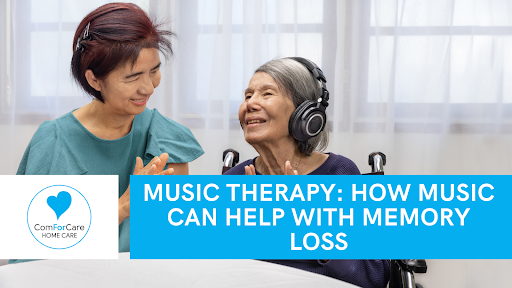

Memory loss can be a frustrating and often scary experience, especially as we age. It can be caused by various factors, including Alzheimer’s disease, dementia, and other neurological disorders. However, recent research has shown that music therapy can effectively improve memory function in older adults.
Benefits of Music Therapy
One of the most significant benefits of music therapy is that it can improve cognitive function in older adults. Music therapy can help improve memory, attention, and executive function in older adults. This is because music activates many brain areas, including those responsible for memory and attention.
Additionally, music therapy can help reduce stress and anxiety. Stress and anxiety can contribute to memory loss, so reducing these symptoms can help improve memory function. Music therapy has been shown to reduce stress and anxiety in older adults, making it an effective tool for improving memory function.
Music therapy can also provide a sense of emotional well-being. Listening to music can evoke positive emotions and memories, improving mood and overall quality of life. This is particularly important for older adults struggling with loneliness or depression.
How Music Therapy Works
Music therapy works by stimulating various brain areas, including those responsible for memory and attention. When we listen to music, our brains are activated in many different ways. Music can activate the auditory cortex, which is responsible for processing sound, as well as the limbic system, which is responsible for emotions and memory.
Additionally, music therapy can help improve mood and reduce stress and anxiety. When we listen to music, our brains release dopamine, a neurotransmitter associated with pleasure and reward. This can help improve our mood and reduce stress and anxiety, which can contribute to improved memory function.
Types of Music Therapy
There are several types of music therapy that can be used to improve memory function in older adults. One of the most common types of music therapy is called rhythmic auditory stimulation (RAS). RAS involves using rhythmic patterns to help improve motor function and memory. This type of music therapy has been shown to be effective in improving memory function in older adults.
Another type of music therapy is called melodic intonation therapy (MIT). MIT involves using melodic patterns to help improve speech and language function in older adults. This type of music therapy has been shown to be effective in improving memory function in older adults with aphasia, a language disorder that can occur after a stroke.
Music therapy can also include singing, dancing, and playing musical instruments. These activities can help improve memory function by engaging multiple areas of the brain and promoting physical activity.
Incorporating Music Therapy into Daily Life
Incorporating music therapy into daily life can be a simple and enjoyable way to improve memory function. Here are some tips for incorporating music therapy into your daily routine:
1. Listen to Music: Make a playlist of your favorite songs and listen to them regularly. This can help improve mood, reduce stress, and stimulate memory function.
2. Sing: Singing along to your favorite songs can help improve memory function and promote emotional well-being.
3. Play Musical Instruments: Playing musical instruments, such as a guitar or piano, can help improve memory function by engaging multiple areas of the brain.
4. Dance: Dancing to music can help improve memory function by promoting physical activity and stimulating the brain.
5. Attend Music Therapy Sessions: If you or a loved one is experiencing memory loss, consider attending music therapy sessions with a trained professional. These sessions can be tailored to the individual’s specific needs and can be an effective tool for improving memory function.
Final Thoughts
Music therapy is a powerful tool for improving memory function in older adults. It works by stimulating various areas of the brain, including those responsible for memory and attention. Music therapy can help reduce stress and anxiety, improve mood and emotional well-being, and promote physical activity. There are several types of music therapy that can be used to improve memory function, including rhythmic auditory stimulation and melodic intonation therapy. By incorporating music therapy into daily life, older adults can improve memory function and overall quality of life.
Give your loved one the dementia care they deserve with the help of ComForCare. We are a senior home service that takes a client-centered approach to home care. Whether your loved one needs assistance only a few hours a week or around the clock, our team is happy to help! Get in touch with us today!
Whether your loved one needs assistance only a few hours a week or around-the-clock, our team is happy to help! Call (781) 821-2800 to learn more about the transition care services offered through ComForCare Home Care (Canton, MA).

Each office is independently owned and operated and is an equal opportunity employer.

© 2026 ComForCare Franchise Systems, LLC.